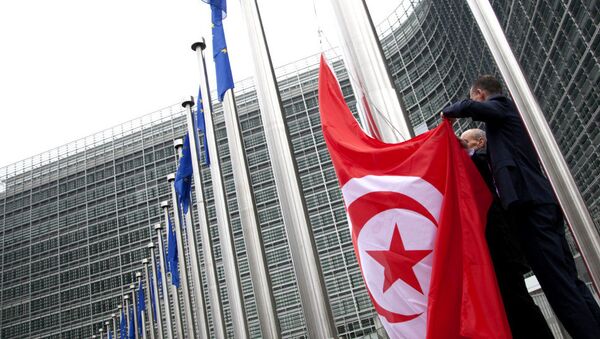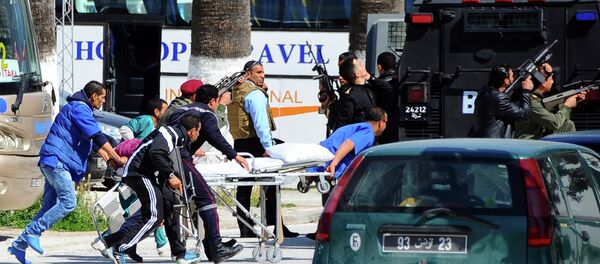MEPs spoke with EU foreign affairs chief Federica Mogherini about last week's terror attack on the Tunis Bardo museum, which claimed the lives of more than 20 people, including European tourists.
More than 3,000 Tunisians have left to fight in Iraq and Syria and the government is concerned those who return will carry out more attacks on Tunisian soil.
Essential Intervention or a Trigger for More Attacks?
While many backed Ms Mogherini's claims that continued EU support for Tunisia was essential to help the country continue along a democratic path, other MEPs questioned the need for the bloc to become too heavily involved in Middle Eastern affairs, suggesting that European "interference" perhaps acted as a trigger for the terrorist attacks in Tunis.
.@FedericaMog at the @Europarl_EN on recent #terrorist attacks in #Tunisia http://t.co/SvAgKMHrtu pic.twitter.com/xNPLecpPrP
— EU External Action (@eu_eeas) March 25, 2015
Since being appointed as EU foreign policy chief in November, Ms Mogherini has indicated her willingness to actively play a part in trying to help solve the many political issues in the Middle East, saying that it is essential for the long-term security of Europe.
Among the suggestions is increasing the number of high-level meetings with countries such as Egypt, Saudi Arabia and Jordan.
Meeting with King Abdullah II of #Jordan in Strasbourg: common work on #Syria, #Libya, #MiddleEast and terrorism pic.twitter.com/n6DLzjuNcF
— Federica Mogherini (@FedericaMog) March 10, 2015
These views have been widely praised, however there has been some criticism of there being too much Western involvement in Arab affairs, with suggestions it may cause social discontent among swathes of the population.
An example of this was seen in December when Algerian Foreign Minister Ramtane Lamamra said he wouldn't let foreign states or international blocs, such as the EU, interfere with the country's internal politics.
After the Bardo museum attack, Tunisia now faces a real test of its transition to democracy since the start of the Arab Spring.
— Bunny Buddhism (@jemphih) March 26, 2015
Although praising EU management and Algeria's relationship with the bloc, Lamamra said that there was concern over certain EU members "who act from individual beliefs."



